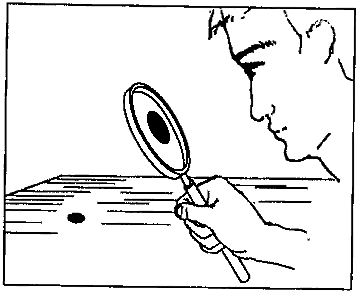
���� ���Ľ������������뿪��������֮���ٴλ����������ļ���ľ�仯��
��� 76��in��Ϊfrom�������ʣ���������Ϊ"���뿪��������"��away from���ڹ̶����䣬��Ϊ"Զ�룬�뿪"��
77��living��Ϊlive�����鶯�ʣ�used to do�ǹ̶����䣬��ʾ"��ȥ������ij����"��
78��older��Ϊold���������ݴʣ�����û�бȽϵ���˼��ֻ�������ݴ����������fish shop��
79��were��Ϊare�����鶯�ʵ�ʱ̬���������Ŀ�֪����������ʧ�������������ڵ������
80��exist��Ϊexists�����鶯�ʵ�ʱ̬������a park�ǵ��������˳ƣ�
81����ȷ
82��sportsǰ��a������ڴʣ�sports center�е���������ʱcenter���ǿ������ʵ���������a��ʾ��ָ��
83��their��Ϊits�������������ʣ�ǰ�����ᵽ��The factory�ǵ�������Ͼ���˴�����������ֱ������"������"���ʰ�their��Ϊits��
84��ȥ��been������give way to"��·"���˴�Ҫ��������̬��
85��Besides��ΪBut���������ʣ�ǰ�潲���ܶཨ���������ˣ�����˵"ѧУ�Աߵ���껹������"������Ҫ��but��ʾת�ۣ�
���� ���ĸĴ�����Ҫͨ��ȫ�ģ�����������ĵ�����˼�룬Ȼ����ݶ��Ľ���������ȷ�����µĻ���ʱ̬�������û�������֪ʶ��ʱ̬����̬����ʽ�ṹ���̶�����ȷ��泹���з������Ա㾡���ҳ����ĵĴ������ڲ������ģ�



| �꼶 | ���пγ� | �꼶 | ���пγ� |
| ��һ | ��һ��ѿγ��Ƽ��� | ��һ | ��һ��ѿγ��Ƽ��� |
| �߶� | �߶���ѿγ��Ƽ��� | ���� | ������ѿγ��Ƽ��� |
| ���� | ������ѿγ��Ƽ��� | ���� | ������ѿγ��Ƽ��� |
��Ŀ������Ӣ�� ��Դ�� ���ͣ��Ķ�����
| Why choose eco-fashion�� | ||
| ��76��Aspects/Two aspectsof fashion | Ecological | Textile & clothing production processes |
| Related environmental issues | ||
| Ethical | ��77��Working conditionsinvolved | |
| ��78��Problemswith fashion | Textile production | Cotton-planting��use of pesticides |
| ��79��Sheep-farming and wool-cleaning��global warming | ||
| Synthetics-making��harmful waste | ||
| ��80��Clothing production | Consuming a great deal of energy | |
| Using harmful chemicals | ||
| Producing a lot of waste | ||
| Consumption levels & shopping habits | New clothes��bought��81��in increasing quantities | |
| Old clothes��thrown away quickly | ||
| ��82��Solutionsto problems | Fashion producers | Ways to��83��recycle and minimize waste�� •Switching to green energy •Reducing energy use •Selecting sustainable materials •Choosing local suppliers |
| ��84��Consumers | Selecting environmentally friendly clothing | |
| ��85��Reducing clothing consumption | ||
| Choosing eco-fashion can contribute to our personal health�� | ||
�鿴�𰸺ͽ���>>
��Ŀ������Ӣ�� ��Դ�� ���ͣ��������

�鿴�𰸺ͽ���>>
��Ŀ������Ӣ�� ��Դ�� ���ͣ��������
�鿴�𰸺ͽ���>>
��Ŀ������Ӣ�� ��Դ�� ���ͣ�ѡ����
| A�� | far from | B�� | along with | C�� | next to | D�� | regardless of |
�鿴�𰸺ͽ���>>
��Ŀ������Ӣ�� ��Դ�� ���ͣ��Ķ�����
�鿴�𰸺ͽ���>>
��Ŀ������Ӣ�� ��Դ�� ���ͣ��������
�鿴�𰸺ͽ���>>
��Ŀ������Ӣ�� ��Դ�� ���ͣ�ѡ����
| A�� | are enjoying | B�� | are to enjoy | ||
| C�� | will enjoy | D�� | will be enjoying |
�鿴�𰸺ͽ���>>
��Ŀ������Ӣ�� ��Դ�� ���ͣ�ѡ����
| A�� | hasn't she | B�� | has she | C�� | isn't she | D�� | is she |
�鿴�𰸺ͽ���>>
����ʡ������Υ���Ͳ�����Ϣ�ٱ�ƽ̨ | �����к���Ϣ�ٱ�ר�� | ����թƭ�ٱ�ר�� | ����ʷ���������к���Ϣ�ٱ�ר�� | ������Ȩ�ٱ�ר��
Υ���Ͳ�����Ϣ�ٱ��绰��027-86699610 �ٱ����䣺58377363@163.com